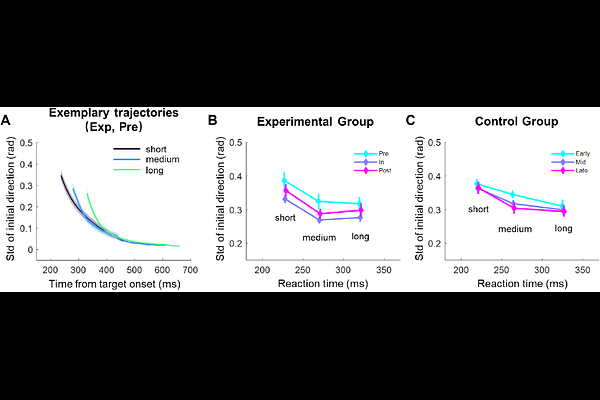Humans underestimate their body mass in microgravity: evidence from reaching movements during spaceflight

Humans underestimate their body mass in microgravity: evidence from reaching movements during spaceflight
Zhang, Z.; Tian, Y.; Wang, C.; Jiang, C.; Wang, B.; Yu, H.; Zhao, R.; Wei, K.
AbstractAstronauts consistently exhibit slower movements in microgravity, even during tasks requiring rapid responses. The sensorimotor mechanisms underlying this general slowing remain debated. Two competing hypotheses have been proposed: either the sensorimotor system adopts a conservative control strategy for safety and postural stability, or the system underestimates body mass due to reduced inputs from proprioceptive receptors. To resolve the debate, we studied twelve taikonauts aboard the China Space Station performing a classical hand-reaching task. Compared to their pre-flight performance and to an age-matched control group, participants showed increased movement durations and altered kinematic profiles in microgravity. Model-based analyses of motor control parameters revealed that these changes stemmed from reduced initial force generation in the feedforward control phase followed by compensatory feedback-based corrections. These findings support the body mass underestimation hypothesis while refuting the strategic slowing hypothesis. Importantly, sensory estimate of bodily property in microgravity is biased but evaded from sensorimotor adaptation, calling for an extension of existing theories of motor learning.